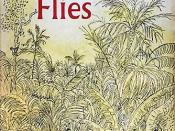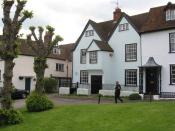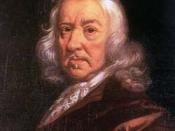Foreword
On the following pages the novel "Lord of the Flies" and the 1950's in Britain will be discussed.
The introduction will exclusively deal with the novel of William Golding and the author himself. The general information includes of course a summary, a portrait of the author, the island setting of the novel and a characterisation of the characters that are of importance because of they are political symbols and very important throughout the novel.
The main part introduces the 1950's in Britain with a historical survey that includes the Suez Crisis because the crisis will be discussed in one of the central themes, too.
The three central themes in the main part are how the boys on the island refer to their old school system, how the theory of the political philosopher Thomas Hobbes can be compared to the ideas of the "Lord of the Flies" author William Golding and some examples from the history of the 1950's will be related to William Golding's idea of the evil in man.
The idea to comprise Thomas Hobbes is from the politic class where we discussed Thommas Hobbes and specifically his idea of man. While reading Lord of the Flies and some recensions I often remembered this ideas.
The conclusion is a personal statement and a short analysis of how realistic and comprehensible the individual topics were.
Introduction
The author "William Golding" - a short biography
William Golding was born on Sept. 19, 1911 in Cornwall (in the following compare MSN Encarta). He was a British novelist who won the Nobel Prize for literature in 1983. In school he was already fascinated with language but not very skilled at mathematical studies.
Golding attended the Oxford University and planned to complete a degree in the natural sciences because...


